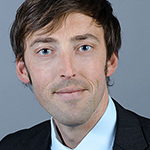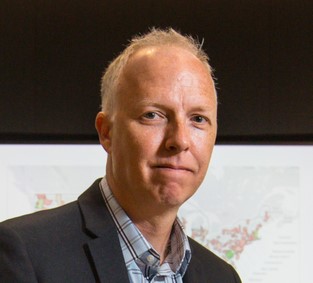Rethinking Science, Policy
How Complexity Science Can Guide Urban Transformations
Lessons from Germany
About the Seminar
March 29, 2023 9:00am—10:00am
Urban and regional economies must constantly adapt to challenges. From planned redevelopment efforts to unexpected shocks like natural disasters, these economies are in constant flux. How can we best plan for beneficial, inclusive economic transitions?
Recent breakthroughs in complexity science and related fields offer new insights and solutions to guide cities through economic transitions. Complexity science techniques were piloted in Lausitz, Germany, a region heavily dependent on coal mining and other extraction industries. German Energiewende (energy transition) policy aims to make the country climate neutral by 2025, which would replace extraction industries with new, green ones. This transition will need new infrastructure, new skills for workers, and new industries.
On March 29 at 9AM ET, join Shade T. Shutters (Arizona State University) and Bastian Alm (German Federal Ministry for Economic Affairs and Climate Action) for a New Tools in Science Policy breakfast seminar. Examining how these new techniques have been applied in Germany gives a glimpse of how science can help cities in other countries navigate disruptions, whether due to energy policies, natural disasters, or simply reconfiguring local economies for a brighter future.
Location Information
ASU Barrett & O’Connor Center
1800 I St NW
8th Floor
Washington, DC 20006
Additional Information
Event Policies:
- Attendees are required to show proof of up to date COVID-19 vaccination with ID.
- Breakfast will be provided.
- Doors open at 8:30AM ET.
- This event will also be livestreamed. Register here to attend virtually.
Links
Speakers
Past Series
-
October 03, 2024 3:30pm
Carbon Removal Social [Science]
Holly Buck, Sara Nawaz, Rory Jacobson, Marcela Mulholland, Amanda Borth
-
June 04, 2024 12:00pm
Hopeful Climate Futures through Speculative Storytelling: Decolonizing Global Climate Action
Chinelo Onwualu, Joey Eschrich
-
April 29, 2024 9:00am
Public Funding, Patents, and Technology Transfer: Learning from the Contrasting Oxford and Texas Models of COVID-19 Vaccine Production and Distribution
Ken Shadlen
-
March 21, 2024 9:00am
Inspirations from European Technology Assessments: Institutions, Practices and Key Debates
Anja Bauer
-
May 10, 2024 9:00am
Adapting Federal Programs to Evolving Public Values: Insights from the Department of Energy
Darshan Karwat, Matthias Galan
-
April 30, 2024 9:00am
ASU’s Milo Space Science Institute: Increasing the World’s Access to Space
Jim Bell
-
January 22, 2024 12:00pm
Reinventing Participatory Technology Assessment
Nicholas Weller, Amanda Borth, Emily Hostetler, Jared Owens, Arthur Daemmrich
-
November 17, 2023 9:00am
“Unacceptable Costs”: Managing for biological invasions and climate risks in the US Pacific Islands
Laura Brewington
-
October 30, 2023 9:00am
Patent Data & Publicly-Funded Research: Applications, Benefits, & Misuse
Bhaven N. Sampat

